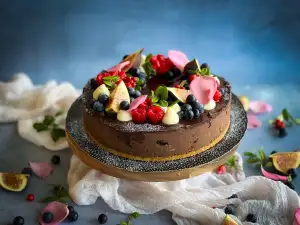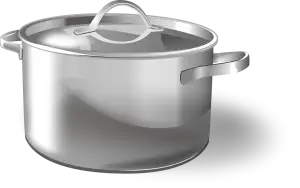Spice up Your Taste Buds with Exquisite Moroccan Chicken Recipe

- History and Origins of Moroccan Cuisine
- Overview of Moroccan Spices and Flavors
- Ingredients for Moroccan Chicken
- Step-by-Step Recipe for Moroccan Chicken
- Tips for Cooking Moroccan Chicken
- Serving Suggestions and Pairings for Moroccan Chicken
- Health Benefits of Moroccan Chicken
- Variations and Adaptations of Moroccan Chicken
Moroccan Chicken is a delightful and aromatic dish that will transport your taste buds to the exotic flavors of North Africa. This traditional Moroccan recipe combines tender chicken with a tantalizing blend of spices and herbs, creating a truly mouthwatering experience. The rich and fragrant sauce, infused with the essence of cinnamon, cumin, and coriander, perfectly complements the succulent chicken. Whether you are a fan of bold flavors or simply looking to explore new culinary horizons, Moroccan Chicken is sure to satisfy your cravings and leave you craving for more. Get ready to embark on a culinary adventure as we delve into the history, ingredients, preparation, and health benefits of this exquisite dish.
History and Origins of Moroccan Cuisine
Moroccan cuisine is a rich tapestry of flavors and influences, shaped by centuries of history and cultural exchange. Its origins can be traced back to the indigenous Berber people, who inhabited North Africa long before the arrival of Arab settlers. Over time, Moroccan cuisine has been influenced by various civilizations including the Arabs, Moors, and French.
The Arab conquest in the 7th century brought new ingredients such as rice, almonds, and spices like cinnamon and saffron. The Moors introduced fruits like oranges and lemons, as well as techniques like preserving food in salt or vinegar. The French colonization in the early 20th century added elements of French culinary traditions to Moroccan cooking.
Moroccan cuisine is also heavily influenced by its geographical location at the crossroads of Africa, Europe, and the Middle East. This has led to a fusion of flavors from different cultures, resulting in a unique blend of sweet and savory tastes.
Today, Moroccan cuisine is renowned for its aromatic spices, vibrant colors, and complex flavor profiles. It is a celebration of bold flavors such as cumin, coriander, turmeric, ginger, paprika, and cinnamon. These spices are used not only to enhance the taste but also to create a harmonious balance between heat and sweetness.
The history and origins of Moroccan cuisine have shaped it into a culinary treasure that continues to captivate food lovers around the world. It is an invitation to embark on a sensory journey through time and indulge in the rich heritage of Moroccan gastronomy.
Overview of Moroccan Spices and Flavors
Moroccan cuisine is renowned for its rich and vibrant flavors, thanks to the extensive use of aromatic spices. The combination of sweet, savory, and tangy flavors creates a unique culinary experience that tantalizes the taste buds. Some of the key spices used in Moroccan cooking include cumin, coriander, ginger, paprika, cinnamon, saffron, and turmeric. These spices not only add depth and complexity to dishes but also contribute to their beautiful golden hues. The careful balance of these flavors is what sets Moroccan cuisine apart and makes it truly irresistible.
Ingredients for Moroccan Chicken
To create the perfect Moroccan Chicken dish, you will need a variety of flavorful ingredients. Here's a list of what you'll need:
1. Chicken: Use bone-in chicken pieces like thighs or drumsticks, as they retain moisture and add richness to the dish.
2. Moroccan Spice Blend: This is the heart of the dish and typically includes a combination of ground cumin, coriander, paprika, turmeric, cinnamon, ginger, and cayenne pepper. It gives the chicken its distinctive Moroccan flavor.
3. Olive Oil: Use extra virgin olive oil for its rich flavor and health benefits. It helps in marinating the chicken and adds a delicious taste to the final dish.
4. Garlic and Onion: These aromatic ingredients provide depth of flavor to the chicken.
5. Lemon Juice: Freshly squeezed lemon juice adds tanginess and brightness to balance out the spices.
6. Fresh Herbs: Cilantro or parsley are commonly used herbs in Moroccan cuisine. They add freshness and enhance the overall taste.
7. Green Olives: These briny olives add a unique twist to the dish with their salty flavor.
8. Preserved Lemon (optional): This traditional Moroccan ingredient adds a slightly sweet yet tangy flavor to the chicken.
9. Chicken Broth: It helps in creating a flavorful sauce while cooking the chicken.
10. Salt and Pepper: Seasonings that bring out all the flavors in your dish.
Having these ingredients ready will ensure that you can fully enjoy the authentic flavors of Moroccan Chicken!
Step-by-Step Recipe for Moroccan Chicken
1. Start by marinating the chicken in a mixture of Moroccan spices such as cumin, paprika, turmeric, ginger, and cinnamon. Allow it to marinate for at least 30 minutes to infuse the flavors.
2. Heat some olive oil in a large skillet over medium heat. Add diced onions and minced garlic, sautéing until they become translucent and fragrant.
3. Next, add the marinated chicken pieces to the skillet and cook until they are browned on all sides.
4. Once the chicken is browned, pour in a can of diced tomatoes along with their juices. Stir well to combine.
5. Add chopped vegetables like bell peppers, carrots, and zucchini to the skillet. These will add color and texture to your dish.
6. Season with salt, pepper, and a pinch of saffron threads for an authentic Moroccan touch.
7. Cover the skillet and simmer on low heat for about 30-40 minutes or until the chicken is cooked through and tender.
8. Before serving, garnish with fresh cilantro or parsley for added freshness and flavor.
9. Serve your Moroccan chicken hot with couscous or rice on the side to soak up all the delicious sauce.
10. Enjoy this flavorful dish that combines aromatic spices with tender chicken for a truly memorable culinary experience!
Tips for Cooking Moroccan Chicken
1. Marinate the chicken: To infuse the flavors, marinate the chicken overnight in a mixture of Moroccan spices, lemon juice, and olive oil. This will tenderize the meat and enhance its taste.
2. Use authentic Moroccan spices: Invest in high-quality spices like cumin, coriander, turmeric, paprika, cinnamon, and ginger. These spices are essential for creating the authentic Moroccan flavor profile.
3. Slow cook for maximum flavor: Traditional Moroccan chicken is often slow-cooked to allow the flavors to develop fully. Consider using a tagine or a slow cooker to achieve tender and flavorful results.
4. Don't skimp on herbs: Fresh herbs like cilantro and parsley add brightness and freshness to Moroccan dishes. Add them generously towards the end of cooking or as a garnish for an extra burst of flavor.
5. Adjust seasoning to taste: Moroccan cuisine is known for its bold flavors, but everyone's taste preferences vary. Taste your dish as you go along and adjust the seasoning accordingly with more spices or salt if needed.
6. Experiment with preserved lemons: Preserved lemons are a staple in Moroccan cooking and can add a unique tanginess to your chicken dish. If you can find them, chop them up and include them in your recipe.
7. Serve with traditional accompaniments: To complete your Moroccan experience, serve your chicken with couscous or fragrant rice pilaf. Don't forget to offer some warm flatbread on the side for scooping up those delicious juices!
Remember, cooking is all about experimentation and personalization, so feel free to adapt these tips based on your own preferences and creativity in the kitchen!
Serving Suggestions and Pairings for Moroccan Chicken
When it comes to serving Moroccan chicken, there are plenty of delicious options to consider. One classic pairing is with fluffy couscous, which helps soak up the flavorful sauce. You can also serve it with fragrant basmati rice or crusty bread to mop up the juices. For a lighter option, try serving the chicken over a bed of mixed greens or alongside a refreshing cucumber and tomato salad. Don't forget to garnish with fresh herbs like cilantro or parsley for an added burst of flavor. And if you're feeling adventurous, why not try serving Moroccan chicken as part of a mezze platter with hummus, falafel, and grilled vegetables? The possibilities are endless, so get creative and enjoy the diverse flavors of Moroccan cuisine!
Health Benefits of Moroccan Chicken
Moroccan cuisine is not only known for its rich flavors but also for its health benefits. The use of spices and ingredients in Moroccan chicken offers numerous advantages for your well-being.
Firstly, the combination of spices like turmeric, cumin, and ginger used in Moroccan chicken provides anti-inflammatory properties that can help reduce inflammation in the body. This can be beneficial for individuals with conditions such as arthritis or other inflammatory diseases.
Secondly, Moroccan chicken is often cooked with olive oil, which is a heart-healthy fat. Olive oil contains monounsaturated fats that can help lower bad cholesterol levels and reduce the risk of heart disease.
Furthermore, the inclusion of vegetables such as tomatoes, onions, and bell peppers in Moroccan chicken adds essential vitamins and minerals to your diet. These vegetables are packed with antioxidants that can boost your immune system and protect against chronic diseases.
Lastly, the lean protein from chicken promotes muscle growth and repair. It is a great source of high-quality protein that helps keep you feeling full for longer periods, aiding in weight management.
By incorporating Moroccan chicken into your diet, you not only indulge in delicious flavors but also reap the benefits of a nutritious meal that supports overall health and well-being.
Variations and Adaptations of Moroccan Chicken
While the traditional Moroccan chicken recipe is undeniably delicious, there are also several variations and adaptations that you can try to add your own twist to this flavorful dish. Here are a few ideas:
1. Lemon and Olive Moroccan Chicken: Add some tangy flavor by marinating the chicken in a mixture of lemon juice, olive oil, garlic, and Moroccan spices before cooking. Serve it with a side of green olives for an extra burst of flavor.
2. Spicy Harissa Moroccan Chicken: For those who love heat, incorporate harissa paste into the marinade or sauce for a fiery kick. The combination of spicy harissa with the aromatic spices will take your taste buds on an unforgettable journey.
3. Apricot Glazed Moroccan Chicken: Give your dish a touch of sweetness by glazing the chicken with a mixture of apricot jam, honey, and Moroccan spices. This variation adds a delightful balance between sweet and savory flavors.
4. Vegetarian Moroccan Chickpea Stew: If you prefer plant-based options, you can adapt the recipe by replacing the chicken with chickpeas or other vegetables like eggplant or zucchini. The spices and flavors will still shine through, creating a hearty and satisfying vegetarian meal.
5. Slow Cooker Moroccan Chicken: For busy individuals, try making this dish in a slow cooker for convenience. Simply combine all the ingredients in the slow cooker and let it cook on low heat for several hours until the chicken is tender and infused with all the delicious flavors.
Feel free to experiment with different ingredients and techniques to create your own unique version of Moroccan chicken. The possibilities are endless when it comes to adapting this versatile dish to suit your personal preferences and dietary needs.
In conclusion, embracing the exquisite flavors of Moroccan cuisine is a journey that will take your taste buds on a delightful adventure. The combination of aromatic spices, bold flavors, and unique cooking techniques make Moroccan chicken a truly special dish. Whether you're a seasoned chef or just starting out in the kitchen, this recipe is sure to impress. So go ahead, gather your ingredients and get ready to savor the rich flavors and vibrant colors of Moroccan chicken. Let this culinary experience transport you to the enchanting streets of Morocco and ignite your love for food like never before.
Published: 19. 11. 2023
Category: Food



